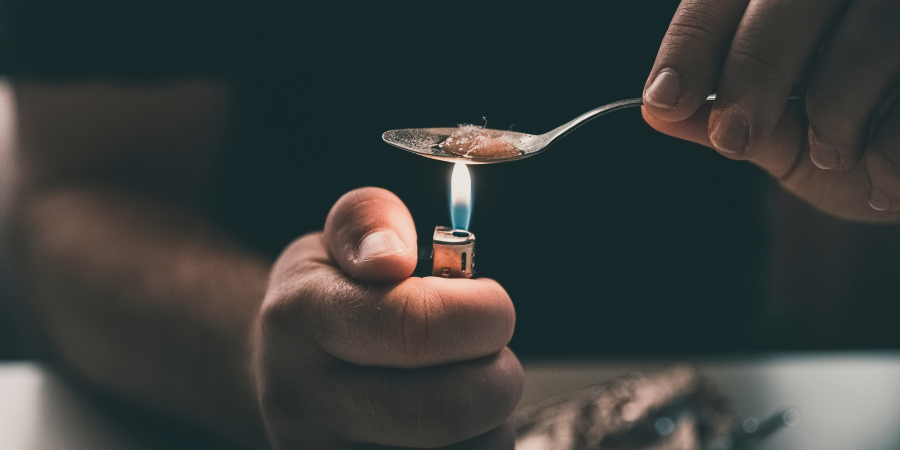A New Approach to an Old Problem
There is growing global interest in traditional plant medicines as potential treatments for difficult and destructive addictions — and among them, Iboga, a sacred plant native to Gabon, stands out.
For centuries, the Bwiti people have used Iboga in spiritual and healing ceremonies to restore balance and truth. Today, science is beginning to uncover how this ancient medicine may help with one of the most challenging forms of addiction: crack cocaine.
Understanding Crack Cocaine Addiction
Crack cocaine is a crystallized and highly potent form of cocaine. When smoked, it produces an intense, short-lived euphoria followed by a sharp crash, often accompanied by anxiety, paranoia, and depression.
This rapid high-and-crash cycle drives users to seek more, trapping them in a self-reinforcing pattern of dependency that can quickly spiral into addiction.
The Brain on Crack Cocaine
Crack cocaine floods the brain with dopamine, the neurotransmitter responsible for pleasure and reward. Over time, the brain’s natural dopamine production and receptor sensitivity are impaired, making it nearly impossible to experience pleasure without the drug.
When the brain’s reward system is hijacked in this way, normal life loses its meaning, and intense cravings take control. This biochemical imbalance is often compounded by psychological and social factors — including trauma, stress, or lack of support systems.
A study in Drug and Alcohol Dependence found a strong link between adverse childhood experiences and the likelihood of developing substance use disorders later in life. This demonstrates that addiction is not only chemical but deeply emotional and environmental.
The Cycle of Addiction
Crack cocaine addiction develops rapidly and is notoriously difficult to break.
Users build tolerance, needing higher doses to achieve the same high, while withdrawal brings painful symptoms such as:
- Fatigue and depression
- Intense cravings
- Anxiety and irritability
- Insomnia and loss of motivation
Traditional rehabilitation programs often address these symptoms but struggle to reach the underlying causes that keep people trapped in the cycle.
Current Treatment Approaches
Conventional treatments typically include cognitive-behavioral therapy (CBT), contingency management, and support groups.
While these methods can be effective, relapse rates remain high.
This has led researchers and holistic practitioners to explore Iboga as a potential complementary or alternative approach — one that treats both the neurological and spiritual roots of addiction.
Iboga: An Ancient Plant with Modern Implications
For generations, Bwiti shamans have used Iboga in sacred rituals to cleanse the body, confront truth, and restore harmony between the mind and spirit.
In modern therapeutic contexts, the active compound Ibogaine has drawn attention for its potential to interrupt addictive patterns and reset brain chemistry.
Scientific Findings on Iboga’s Efficacy
Although most research to date focuses on opioids, results have been encouraging across multiple forms of substance dependency — including cocaine.
- A study in the Journal of Psychoactive Drugs reported that a single dose of Ibogaine significantly reduced withdrawal symptoms and cravings among opioid-dependent participants for several months.
- Another study in the American Journal of Drug and Alcohol Abuse observed sustained improvement in mood and motivation following Ibogaine treatment.
While direct clinical studies on crack cocaine addiction are limited, the mechanisms by which Iboga resets neurotransmission suggest similar potential benefits.
How Iboga Works for Addiction
Ibogaine’s therapeutic power lies in its neurochemical reset. Once ingested, Ibogaine metabolizes into noribogaine, which remains active in the body for days or weeks.
Together, these compounds help:
- Normalize dopamine and serotonin balance, reducing cravings and depression.
- Reset the brain’s reward system, allowing natural pleasure responses to return.
- Enhance neuroplasticity, promoting new, healthy patterns of thought and behavior.
- Trigger deep psychological insight, allowing individuals to confront trauma and self-destructive behaviors at their roots.
This combination of physical detoxification and spiritual introspection is what makes Iboga therapy unique — it treats both the brain and the soul.
The Risks and Challenges
While Iboga’s potential is remarkable, it must be used with extreme care.
Ibogaine can affect heart rhythm (QT prolongation) and liver function, so pre-treatment medical screening and continuous monitoring are essential.
At Bwiti House, every participant undergoes ECG testing, liver function panels, and a detailed health review. Ceremonies are guided by experienced Bwiti elders and supported by trained medical professionals to ensure both safety and spiritual integrity.
Iboga in Traditional and Modern Contexts
In its traditional setting, Iboga is more than a medicine — it is a teacher.
Within the Bwiti cosmology, addiction is understood as a disconnection from truth and spirit. Iboga helps restore that connection, allowing individuals to rediscover who they truly are.
Modern science is now echoing this perspective: recovery is not only about breaking physical dependence but also reconnecting with purpose and meaning.
The Future of Iboga in Addiction Treatment
Integrating Iboga into mainstream addiction therapy is still in its early stages.
More research is needed to develop standardized protocols and ensure accessibility.
However, evidence so far points to Iboga as a promising complementary therapy for individuals struggling with hard-to-treat addictions like crack cocaine — offering both physiological reset and emotional healing.
Conclusion: A Path Toward Renewal
Can Iboga help with crack cocaine addiction?
The emerging answer is yes — when used responsibly, safely, and under expert guidance.
By detoxifying the body, rebalancing brain chemistry, and facilitating deep psychological insight, Iboga offers something rare — the possibility of true transformation.
At Bwiti House, participants are guided through this process in alignment with authentic Bwiti tradition, blending ancient wisdom with modern medical safety to support real, lasting recovery.











